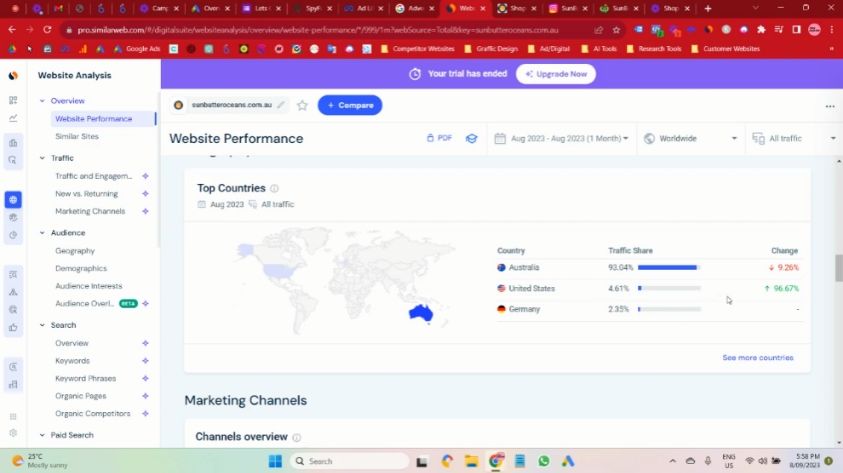Paid search advertising (PPC) is a powerful way for businesses of all sizes to reach new customers and grow their sales.
By reverse engineering the PPC strategies of your competitors, you can gain valuable insights into how to improve your own campaigns.

Google Ads Success: How To 'Finally' Get Your Google Ads Profitable
This guide will help demystify Social Marketing and get you ready for more followers, customers and a real community that want to know that you exist!
- Start by identifying your competitors. Who are the other businesses that are targeting the same keywords as you? You can use tools like Google Keyword Planner and SEMrush to find your competitors.
- Analyze your competitors’ ads. Once you have a list of your competitors, take a close look at their Google ads. What keywords are they targeting? What ad copy are they using? What are their landing pages like?
- Use a PPC spy tool. There are a number of PPC spy tools available that can help you gather more data about your competitors’ campaigns. These tools can show you things like your competitors’ keyword bids, ad positions, and click-through rates.
- Look at your competitors’ organic search results. In addition to PPC, your competitors may also be ranking organically for relevant keywords. Take a look at their top-ranking pages to see what kind of content they are publishing and how they are optimizing their pages for search engines.
Once you have gathered all of this data, you can start to reverse engineer your competitors’ PPC strategies. Here are a few things to look for:
- Which keywords are they targeting? Are they targeting a wide range of keywords or are they focusing on a few specific keywords?
- What kind of ad copy are they using? Are their ads clear, concise, and persuasive? Do they include a call to action?
- What are their landing pages like? Are their landing pages relevant to their ads? Do they offer something of value to visitors?
- How are they bidding on keywords? Are they bidding aggressively or conservatively?
- What are their click-through rates? Do their ads have high click-through rates?
By analyzing your competitors’ PPC strategies, you can learn a lot about how to improve your own campaigns. You can identify new keywords to target, write more effective ad copy, create better landing pages, and set more competitive bids.
Here are some additional tips for reverse engineering a business Google PPC strategy:
- Look for patterns. Once you have gathered data on a number of your competitors, look for patterns. For example, are they all targeting the same keywords? Are they using similar ad copy? Are their landing pages all structured in the same way?
- Don’t be afraid to experiment. Once you have a good understanding of your competitors’ strategies, start experimenting with your own campaigns. Try different keywords, ad copy, and landing pages. See what works best for your business.
- Monitor your results closely. Once you start making changes to your campaigns, monitor your results closely. See
what impact your changes are having on your traffic, leads, and sales.




